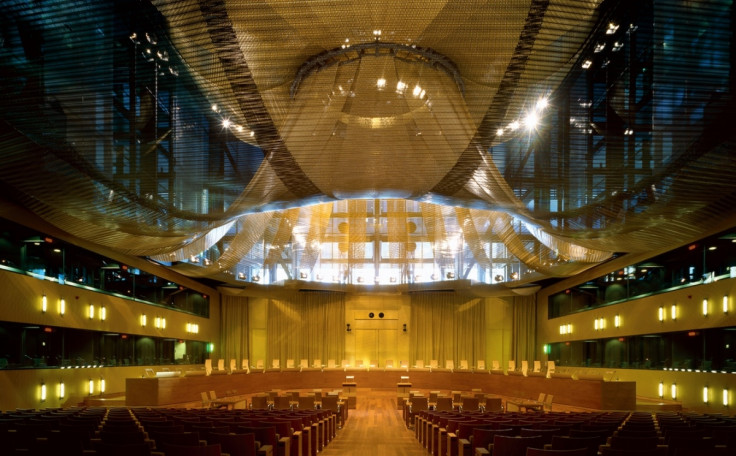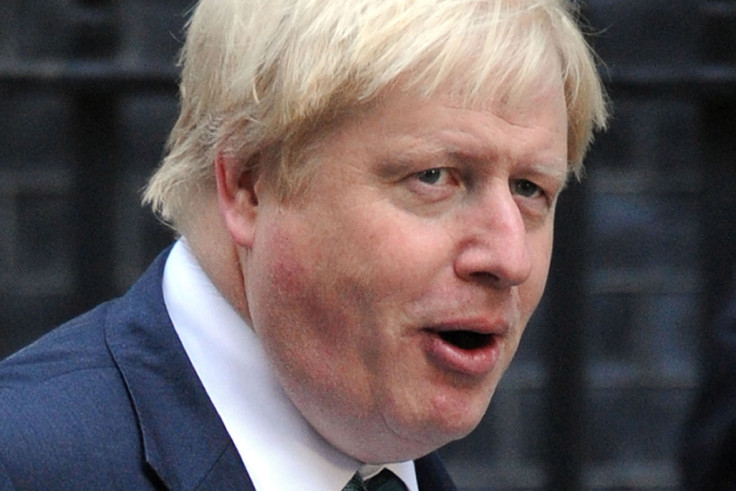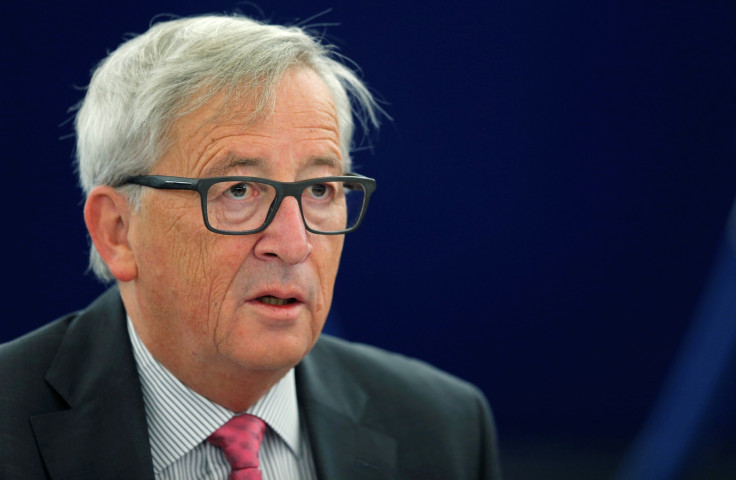UK's post-Brexit trade deal hinges on outcome of secretive EU court case
EU judges will decide if Britain must deal with 27 nations on free trade.
A secretive court case will decide whether the remaining European Union nations get a say in trade negotiations with the UK post-Brexit.
Whether national governments should be able to veto trade negotiations brokered by the bloc has been a burning question this week as opposition from the small Belgian region of Wallonia held up signing the Canada-EU free-trade agreement (CETA).
The court case will determine whether the national governments of EU Member States continue to have the right to veto trade deals.
It will have a monumental impact on the UK's ability to strike a good deal with the rest of the EU — its biggest trading partner — and ensure the economic success of Brexit. But so far the case has escaped the spotlight.
Known as "Opinion 2/15," little information about the case comes up on the Court of Justice of the European Union case law website. Even though it is being heard in English, references to the case in the system are in the court's working language, French. Case hearings are simultaneously translated into the EU's other languages.
Usually the EU posts hearings and consultations online, along with the names of the people involved. "Now you have this court case where they don't provide any information online," researcher and expert in European Union law, David Kleimann, told IBTimes UK. The subject of the case isn't in the case listing, but it can be viewed through a link to a separate document.
For two days in September, Kleimann sat through the case hearing. No one was "allowed to take any pictures or recordings during the hearing," he said, adding that seats for the public were only half full. "I'm amazed, because it's such an important case." Usually cases in the court are heard by three to 15 of the court's judges. This time all 28 presided.

At issue, and what the judges must decide, is whether the European Commission has the right to negotiate and conclude trade agreements on its own without passing them through the current 28 members states' national governments for approval.
It "could potentially decide whether EU Member States have a veto in negotiating the new trade relationship with the UK," said Dr Andrés Delgado Casteleiro, a senior researcher and expert in European law at the Max Planck Institute in Luxembourg.
In spite of its importance, European Union lawyers are the only ones discussing the case, said Delgado, who has written about its implications.

"The UK is going to be in a huge mess" during post-Brexit free trade negotiations, said Kleimann. That's if the judges rule trade deals still have to go to each of the EU member nations for ratification. "If Walloonia wants something, if Slovakia wants something," he said, they could veto any trade agreement until they get the terms they want.
National governments may even demand free movement of their workers to and from the UK. Slovakia, Hungary, Poland and Czech Republic have already demanded those terms.
The same hold-up is happening right now with the CETA deal. Negotiations finished in 2014 and the agreement was supposed to be signed this week. But it is being blocked by a small parliament in French-speaking Walloon region of Belgium.
All this throws into question British Foreign Secretary Boris Johnson's recent assertion that the UK could easily get a trade deal "of greater value" to the country's economy than the EU's Single Market.
Johnson is backing what is being called a "hard Brexit" where all ties to the union are severed and a new free trade agreement must be negotiated. The EU's countries combined represent more than even the United States £88bn in annual trade.
Big things have small beginnings, and at the heart of the court case are questions about a little known trade deal, the EU-Singapore free-trade agreement. Similar issues held it up after negotiations finished in late 2014. Last year, the European Commission brought the case to the court asking whether it could just go ahead and sign the agreement without the member nations' say so.
"Does the Union have the requisite competence to sign and conclude alone the Free Trade Agreement with Singapore?" is the question they put to the court.
The Commission's arguments hinge on how "foreign direct investment" should be defined, as well as sustainable development and whether responsibility for them lies with the Commission or the national governments.
If the case goes one way it could mean the UK is facing down the barrel of vetos from the other member nations. If it goes the other, it would be negotiating terms directly with the European Commission. That alone won't be easy.

Revelation of the case comes a day before UK Prime Minister Theresa May and European Commission President Jean-Claude Juncker prepare to meet on the sidelines of the European Council October 20 and 21 to talk about the UK's decision to leave the EU.
Early this month, Juncker said the EU should be "intransigent" and not give the UK access to the EU's common market without signing on to other principles such as freedom of movement.
Many in the UK think the country will get a bespoke free-trade deal. But that is likely not the case, said Delgado. And it is also impossible to negotiate a free-trade agreement concurrently with Brexit negotiations, said Kleimann, since any deal will be based on Brexit's outcome.
"They have certain templates and ways in which you can relate to them and interact with them in international agreements," Delgado said. Since the bloc has recently negotiated more than a handful of complex trade deals with Canada, Japan, and India, it's much easier for them to take the structure of those deals and apply it to one with Britain.
"Right now, the UK government is not given many options," Delgado said.
The case is "unlikely" to be concluded before the end of this year, according to sources close to the proceedings. And no date has been set for the judges to deliver their ruling. But other sources close to it say the ruling will come in spring 2017.
"There is a lot of will on the EU side to punish the UK" in negotiations, said Kleimann. "If there was a lot of cooperation on the UK government side, that would of course help to also discuss a future trade relationship." But right now the approach is to send them out in the cold.
"In the end," Delgado said, "the UK needs that free trade agreement."
Note (20 October): This article was amended to clarify that the EU member states have the right to veto, rather than approve trade deals, and that French is the court's working language.
© Copyright IBTimes 2024. All rights reserved.






